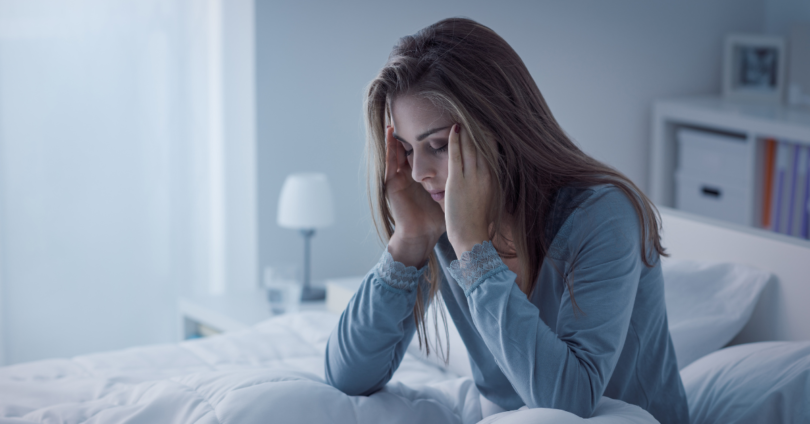Do you experience heightened feelings of anxiety or stress on Sundays ahead of a new work week? Chances are you experience something called the “Sunday Scaries”.
The Sunday Scaries can occur when we feel overwhelmed about the week ahead. Whether it’s a big presentation or many small tasks, these feelings of stress and anxiety can negatively affect our sleep.
We sat down with Sunnybrook sleep neurologist Dr. Mark Boulos to better understand the impacts of pre-work week stress and anxiety on our sleep quality.
How do stress and anxiety impact sleep?
Stress and anxiety can significantly impact sleep duration and quality. When someone experiences heightened stress and anxiety, they may also experience rumination. Rumination is a pattern of repetitive thinking that can impact one’s ability to relax. When rumination occurs around bedtime, people can find it hard to relax before sleeping.
Stress and anxiety also impact sleep by causing delayed sleep onset and interrupted sleep. A delayed sleep onset means people may struggle to fall asleep, tossing and turning in bed. Once someone is able to fall asleep, they may find they repeatedly wake up in the night and struggle to fall back asleep.
Both delayed sleep onset and interrupted sleep can have a significant impact on our mood, and lack of sleep can cause exhaustion, confusion, impaired motor function and low mood. These impacts on our body, in turn, heighten anxiety, creating a cycle that is hard to get out of.
What is sleep hygiene, and how can it improve your sleep quality?
Sleep hygiene refers to practical habits that can help improve sleep quality. It is essential for those who experience stress and anxiety, as it allows you to create an environment conducive to going to sleep and ensures you feel as rested as possible.
Here are some practical ways to practice good sleep hygiene:
- Avoid electronics before bed
Avoiding screens before bed is an important part of practicing good sleep hygiene. The light emitted from cellphones, televisions, and tablets impacts our circadian rhythm, the system that tells our body we are ready for sleep.
Turning off screens 30 to 60 minutes before bed allows our bodies to relax and prepare for sleep. If you must look at a screen before bed, consider purchasing blue-light blocking glasses.
- Only use your bed for sleep and intimacy
Your bedroom should only be used for sleep or intimacy. This will ensure that our bodies associate our bedroom environment with relaxation. Try leaving all electronics outside your bedroom and avoid bringing any electronics into bed with you.
- Maintain your sleep time and duration
Our bodies crave routine, especially when it comes to sleep. To get a good night’s sleep, make sure you go to bed and wake up around the same time every day. This helps your body anticipate when it is time to go to bed, helping you feel more relaxed. You should also aim to get eight hours of sleep per night to ensure your body has time to recharge.
Are there any lifestyle and dietary changes someone can make to improve sleep?
Lifestyle and dietary habits play a significant role in sleep quality. To avoid feeling stressed or anxious around bedtime, avoid caffeine in the evening. Caffeine can impact the quality of your sleep by interfering with your body’s circadian rhythm, making it hard to fall asleep and leaving you feeling unrested in the morning. As well, alcohol consumption near bedtime can increase the chances of sleep apnea, or intermittent pauses in breathing during sleep.
Try to avoid large meals and fluids close to bedtime. Avoiding food and drinks at least 2 hours before bedtime will help prevent you from waking up at night to use the washroom.
What should you do if you are still struggling with sleep?
If you have taken steps to improve your sleep hygiene and pre-bed habits but still struggle to fall or stay asleep, consider seeing a sleep specialist to rule out any sleep disorders. You can do this by visiting your family doctor for a referral.








